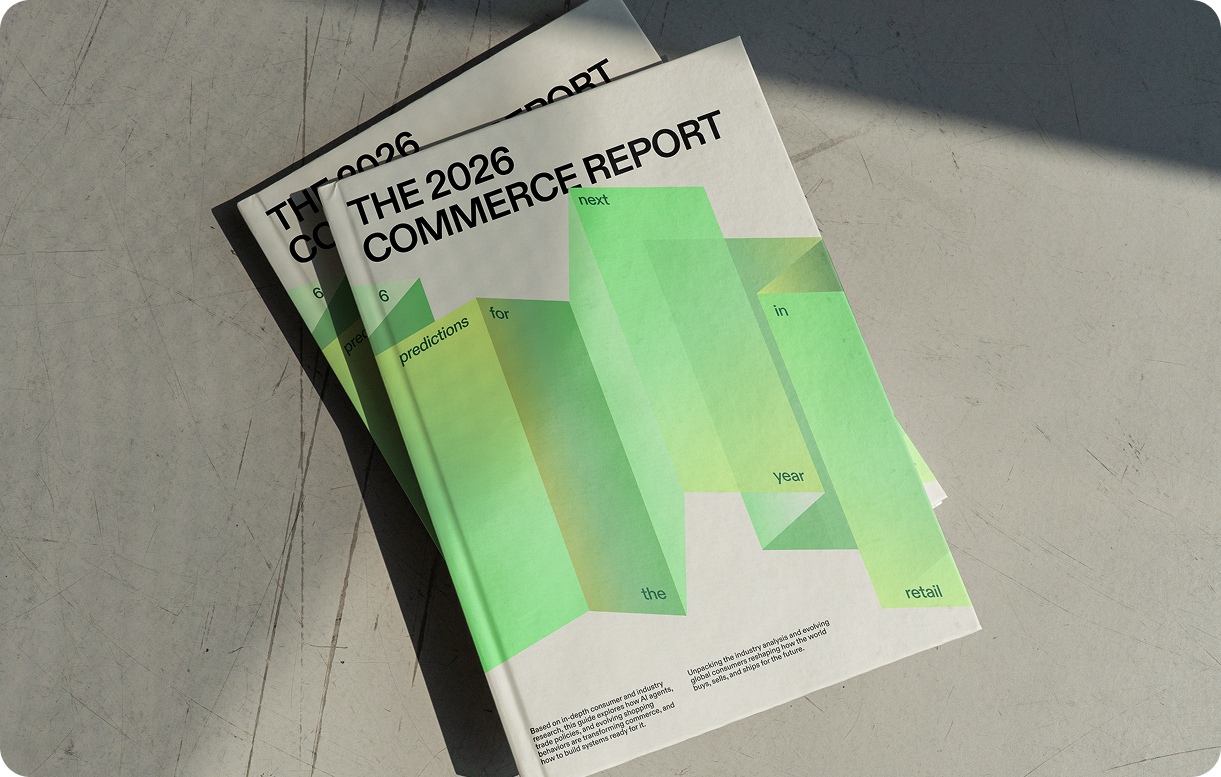As ecommerce businesses scale, managing logistics effectively becomes more important than ever.
Whether you're selling clothing, electronics, or other consumer goods, having the right ecommerce integrations can streamline your operations, reduce costs, and ultimately improve your customer experience.
With the rise of changing tariffs and global supply chain complexities, it’s becoming increasingly vital to find solutions that help businesses stay competitive and efficient.
This guide will help you understand why ecommerce logistics integrations are critical for your growing business, how to select the best integrations, and how to leverage them to thrive within the global ecommerce landscape.
What are Ecommerce Integrations?
Ecommerce integration refers to the connection between your ecommerce platform and the various systems or software you use for operations, such as order fulfillment, shipping, returns, inventory management, and customer service.
With an integration platform in place, data flows seamlessly between these systems, ensuring your entire business operates in sync.
For growing businesses, especially those dealing with clothing or other high-volume items, ecommerce integrations simplify processes like inventory updates, managing returns, and tracking shipments.
A strong ecommerce platform integration ensures that orders are processed correctly, stock levels are updated in real time, and customers receive accurate shipping information - all while reducing the risk of manual errors and delays.
The Importance of Ecommerce Integrations
Ecommerce integrations connect your online store to the various logistics systems and service providers you use to run your business.
With the current complexities around global trade, including tariffs, customs duties, and fluctuating shipping costs, having a robust integration platform can give your business a competitive edge.
Logistics integrations are especially critical for growing businesses.
As your business expands and you start shipping internationally, managing your logistics manually or using disparate systems can lead to errors, delays, and an inefficient workflow.
Ecommerce integrations allow your business to stay agile, adapt to market changes, and offer a seamless customer experience wherever your customers are.
The Best Integrations for Ecommerce Brands
As your business grows, the need for reliable ecommerce integrations becomes even more critical. There are many ecommerce integrations available to improve different aspects of your logistics, from inventory management to shipping.
Here are a few key integrations to consider:
Integrated Payment Platforms
Smooth and secure payment processing is essential for converting visitors into loyal customers.
Integrations with payment platforms like Stripe, PayPal, and Square ensure your ecommerce store can accept a wide range of payment methods quickly and safely.
These platforms handle complex tasks such as fraud detection, currency conversions, and PCI compliance, allowing you to focus on growing your business.
Returns Management Integrations
For businesses in the clothing industry, managing returns is a significant concern.
Integrations like Inmar, NetSuite and SAP help automate the returns process, manage exchanges, and offer store credits, reducing friction in the return process and improving customer satisfaction.
Customer Service Integrations
Connecting your ecommerce platform with customer support tools like Gorgias can streamline your customer service, ensuring that order inquiries, shipping issues, and returns are handled quickly and efficiently.
Warehouse Management Integrations
Efficient warehouse management is critical for scaling your ecommerce business, particularly as order volume increases.
Peoplevox, an industry-leading Warehouse Management System (WMS), integrates with Swap to enable better inventory control, order accuracy, and warehouse efficiency.
Partnering with warehouse management integrations can ensure that your operations run smoothly, allowing for greater scalability and a better overall customer experience.
Customer Data Integrations
Understanding your customers' behavior and preferences is key to tailoring your offerings and improving their experience.
Integrating with Census allows ecommerce businesses to gain valuable insights through post-purchase and onsite surveys.
By utilizing AI-powered dashboards, businesses can analyze customer data, including satisfaction levels, attribution, and brand sentiment, helping to refine product offerings and enhance customer engagement.
These insights are especially beneficial in post-purchase scenarios, allowing businesses to act quickly on feedback and improve overall customer satisfaction.
Package Protection Integrations
Package protection and real-time tracking are essential in building trust and reducing delivery-related anxiety for customers.
Rebuy, integrates seamless package protection with personalized delivery updates.
This collaboration not only helps safeguard customer purchases but also boosts retention by offering reliable delivery solutions.
Whether you’re offering free shipping or protecting high-value products, package protection tools can ensure that your customers have a seamless post-purchase experience.
CRM Integrations
Loyalty is a key factor for any growing ecommerce business, and integrating loyalty platforms can help strengthen your customer base.
Rise.ai and Yotpo offer integrations to provide reward-based systems and loyalty programs that keep customers coming back.
By offering protected, loyalty-driven purchases and customer incentives, these platforms encourage repeat transactions and increase customer lifetime value.
How Ecommerce Integrations Help Manage Tariffs and Global Supply Chains
As tariffs fluctuate and international shipping rules evolve, managing these complexities can be challenging for ecommerce businesses.
Ecommerce integrations help mitigate these challenges by automating tariff calculations and adjusting shipping costs in real time.
Additionally, ecommerce integration software helps you manage international shipments with ease, ensuring compliance with different customs regulations across markets.
This ensures that your global operations run smoothly, even in the face of shifting tariffs and logistical obstacles.
Benefits of Ecommerce Integrations
Ecommerce integrations offer a wide range of benefits that can significantly improve the efficiency and scalability of your business operations.
Here are some key advantages:
Streamlined Operations
Integrating your ecommerce platform with tools for inventory management, shipping, returns, and customer service allows for seamless data flow across systems.
This reduces manual tasks, minimizes errors, and ensures that information is consistently up to date, making day-to-day operations more efficient.
Improved Customer Experience
By connecting your ecommerce store with third-party services like shipping providers, CRM systems, and helpdesks, integrations enhance the overall shopping experience.
Customers benefit from real-time updates, accurate shipping information, easy returns, and personalized communication, leading to higher satisfaction and loyalty.
Cost Reduction
Integrations can help businesses save money by automating processes that would otherwise require manual intervention.
For example, integrated shipping solutions can optimize shipping rates, and automated inventory management can prevent overstocking or understocking, reducing costs associated with storage and stockouts.
Better Risk Management
Integrations can also improve compliance and security by automating tasks like fraud detection, tariff calculations, and duty management.
With real-time monitoring and automation, businesses can better protect themselves from risk while staying compliant with local and international regulations.
By adopting the right ecommerce integrations, businesses can unlock these benefits, streamline processes, and focus more on growth and customer satisfaction.
How to Choose the Right Ecommerce Integration Platform
Choosing the right ecommerce logistics integration platform is crucial for your business’s success.
When evaluating potential platforms, consider the following factors:
- Flexibility
Your platform should integrate seamlessly with your existing ecommerce software, whether it’s Shopify, Magento, or WooCommerce. Look for an ecommerce API integration that supports multiple carriers, payment processors, and customer service tools.
- Scalability
As your business grows, your logistics needs will evolve. Choose a platform that can handle increased order volumes, new shipping providers, and international expansion without requiring major changes to your operations.
- Compatibility
Ensure your integration platform works well with your existing tools, such as your warehouse management system (WMS) or enterprise resource planning (ERP) software. Compatibility across systems can help streamline your logistics operations.
- Real-Time Updates
In today’s fast-paced ecommerce environment, real-time updates are essential. Look for a platform that provides live tracking updates, inventory syncing, and accurate shipping estimates.
How Swap Commerce Optimizes Ecommerce Through Integrations
Swap Commerce provides a comprehensive ecommerce integration platform that connects with top shipping carriers and optimizes your entire post-purchase experience.
By integrating with platforms like UPS, Royal Mail, and Australia Post, Swap Commerce ensures your customers get reliable and protected ecommerce service - both domestically and scaling internationally.
Swap’s platform also provides powerful returns management features, helping you streamline returns, manage exchanges, and offer store credits, all within a single platform.
With Swap, you have access to first class ecommerce integrations, all managed from one platform.
Whether you’re dealing with global logistics, fluctuating tariffs, or simply want to improve your order fulfillment process, Swap Commerce provides the tools you need to optimize your operations and improve customer satisfaction.
Future-Proofing Your Ecommerce Business with the Right Integrations
As ecommerce businesses continue to grow, the right logistics integrations will be essential for staying competitive.
By investing in the right ecommerce integration software, your business can manage supply chains more effectively, navigate changing tariffs, and enhance customer satisfaction. With the right tools in place, you’ll be able to scale effortlessly while keeping costs in check and providing an exceptional customer experience.
Ready to simplify your logistics and ecommerce integrations? Discover how Swap Commerce’s platform seamlessly connects with top logistics providers, optimizing your operations and improving customer satisfaction. Book a Demo today!


















